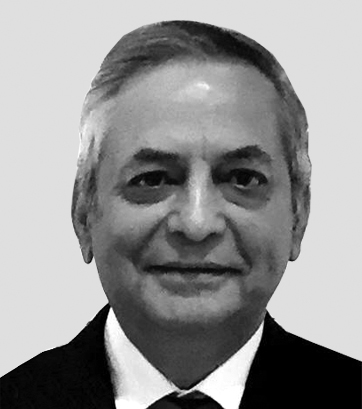Ball in Nawaz Sharif’s court
For many people, the main point of interest that arises from Mian Nawaz Sharif’s case is the legality of his stay in London. Pakistan Interior Ministry has thus far talked about Nawaz Sharif’s diplomatic passport, but there is no information on whether, alongside that, he also carries a regular green passport as well. A Pakistani diplomatic passport is an entitlement, amongst others, of every Prime Minister and it’s a prerequisite for life. It entitles the holder visa-free entry and transit into all countries including the UK. Nawaz Sharif’s diplomatic passport expired during his stay in London and the Pakistani government has refused to renew it; in fact, it has cancelled it. And that’s the first problem. One must have a valid passport as a visitor entering any country. The UK cannot grant him any type of travel document unless he is stateless and is granted refugee status under the Refugee Convention.
Nowadays, in immigration matters, a passport is no longer required for the extension of stay over six months – a biometric registration card records any extensions and variations in the leave to remain of a visitor to the UK. The Pakistani government has offered to issue Nawaz Sharif a single travel green passport valid for journey to Pakistan.
Ironically, Nawaz Sharif’s intrinsic problem is the fact that he has no serious illness nor is there any meaningful treatment being undertaken. The mention of low platelets is an obsolete phrase in this case. His expensive medical practitioners have been unhelpful in giving him a health condition report that would warrant a further stay of six months in the UK. Ordinarily, one can get as many six-month extensions as required under a certificate issued by doctors – with the caveat that there is serious illness and hospitalisation. Sadly, this is something that cannot be procured by using money.
Another serious problem is Sharif’s pre-existing criminal record. In many cases under the UK laws, offences committed abroad can have the same effect as those committed inside the UK, giving grounds for refusal of entry or even a ban from future entry to the UK. If the Government believes the presence of a convicted person is “not conducive to the public good”, it can take interventionist steps.
With the dawn of first day after Christmas holidays, the appeal process by Nawaz Sharif may recommence. There’s no physical hearing involved. The decision is based on written arguments and any further appeal to Upper Tribunal is only possible if the first tribunal made an error of law and permission is obtained. That’s a daunting task in this case.
The most likely factor that will enable Sharif’s impending return to Pakistan remains the diplomatic pressure that the Pakistani government has been applying on the UK government. The UK has been persistently reminded by Pakistan about its duty under its own laws not to extend the stay of a convicted person in its country.
When Pakistan began trying to persuade the UK to remove Nawaz Sharif, the pleas fell on deaf ears in Whitehall. This was a justified response as the original decision to allow Sharif to go abroad on medical grounds was signed off by the Federal Cabinet itself. Subsequently, once Sharif was given a six-month extension, Barrister Shahzad Akbar began writing letters to the British government reminding them of their laws. This was a juvenile step as you cannot have your cake and eat it. The change in strategy has included Prime Minister Imran Khan indicating that, if need be, he would personally take a trip to London to secure Nawaz Sharif’s return. This escalation has put a stronger spotlight on Nawaz Sharif’s visa and medical issues in the UK.
Then of course, Pakistan’s enhanced importance in Afghanistan, as ever belatedly recognised by the West has likely played in indirect role in the urgency of Pakistan’s pending diplomatic request to return the convicted Nawaz Sharif.
Finally, there’s another legal aspect tailing his appeal to Islamabad High Court against his conviction. When a convict appeals as a right against the first instance trial court’s decision, the appellant has to be present himself before the court to put forward his grievances against the judgement. If he doesn’t appear before the court that he’s appealed to, his conviction and sentence have to be sealed and no further appeal route to the Supreme Court lies after that. As the saying goes however, the law is an ass. The Islamabad High Court in disposing off Nawaz Sharif’s appeal against conviction curiously left a window of appeal open so whenever he returns to Pakistan, he can approach the High Court.
I learned as a law student that courts must function under the constitution and the law. The complexities that lie behind the open-ended judgment in the Nawaz Sharif case are not understood by me and were certainly not taught to me as a student of law.
